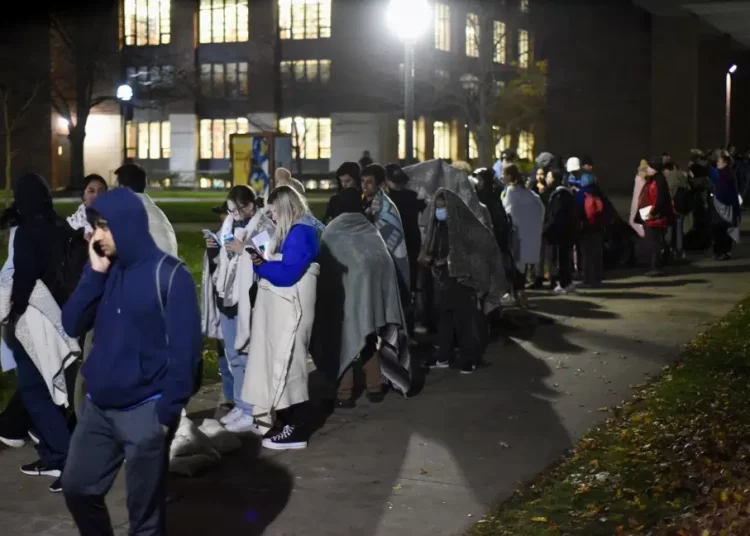State lawmakers around the country introduced thousands of bills to change the way elections are run after former President Donald Trump falsely blamed his 2020 loss on voter fraud. Hundreds became law.
Even with proponents of Trump’s election lies roundly defeated during this year’s midterms, advocates on both sides of the voting debate are bracing for another round of election-related legislation. Republicans are eager to tighten election rules further while Democrats, who took control of two additional statehouses, will seek to make it easier to cast a ballot.
Minnesota’s newly reelected Democratic secretary of state, Steve Simon, said he had spoken to several secretaries of state who are eager to push for changes in voting. Losses by election-denier candidates in top races have emboldened some Democrats to champion expansions of voting rights.
“Voters spoke loudly and clearly about what they wanted and didn’t want, both in regards to this office and all these other issues,” said Simon, who defeated a Republican challenger who parroted some of Trump’s lies about the 2020 election.
Democrats won majorities in both houses of the Minnesota Legislature in November, giving Simon a good shot at enacting changes. He expects to urge lawmakers to adopt automatic voter registration and allow high school students to pre-register.
States routinely make adjustments in their voting laws — some subtle, some dramatic. But experts have never seen an explosion of legislation like that which followed the 2020 presidential election, when more than 3,600 election bills were introduced, according to the Voting Rights Lab, which tracks the legislation.
Liz Avore, senior adviser to the group, said 22 states in the last couple of years expanded access to the ballot, 10 created new restrictions and five expanded access in some ways while creating new barriers in others. This, she said, has created a divide in the US in which “your ZIP code determines your access to our democracy.”
That divide seems likely to grow next year. Legislatures won’t convene until January at the earliest, so it’s unclear how many bills are being drafted and on which subjects. But Texas, where the Legislature meets only once every two years and lawmakers can “pre-file” drafts of legislation for the upcoming session, offers a preview.
The Associated Press has identified nearly 100 election-related legislative proposals already filed in the state, both to increase access to the ballot box and to further restrict it. This includes one that would allow the state’s top lawyer to assign a prosecutor focused on election crimes, testing the boundaries of a court ruling earlier this year that said the attorney general did not have the authority to prosecute election crimes.
Another would assign a group of peace officers to serve as election marshals who investigate claims of election-related missteps. That would follow the lead of Florida, where officers in a special unit assigned to elections have already made a handful of arrests — including of people who mistakenly thought they were eligible to vote under a 2018 constitutional amendment restoring voting rights to some felons. Critics have labeled the unit a political tool of the governor.






Discussion about this post